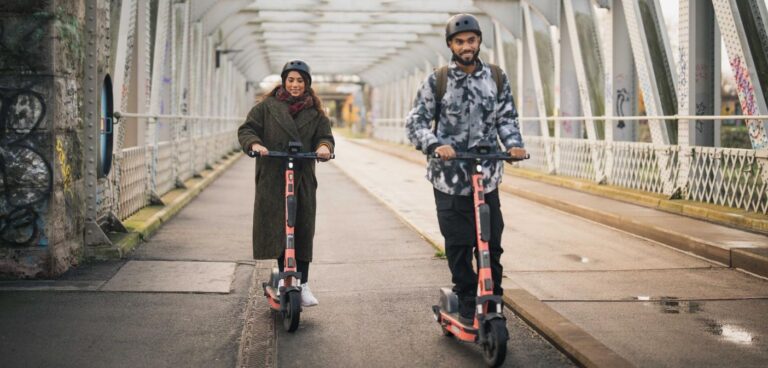E-mobility rental company Voi has called on the UK government to establish a timeline for when it will publish legislation to support the future of the domestic e-scooter industry.
The micromobility firm claims that jobs and investment losses are both potential risks if the government delays legislation.
Voi claims to be the largest e-scooter hire company in the UK and has experience operating across 18 e-scooter and e-bike markets within this region.
So far, shared e-scooter trials have been set up by the central government as means of providing more affordable and sustainable public transport in support of its net zero ambitions.
According to Voi, since setting up its first scheme 2.5 years ago, it has seen 1.2 million rides complete 21.5 million journeys using its e-scooters.
However, the company claims that any gains made by the industry could be jeopardised if the government does not offer the industry legislative support.
“Almost three years after the trials were first started, the demand for e-scooters is proven with Voi alone having 21m rides, replacing over 8m car journeys,” said Matthew Pencharz, head of public policy for Voi UK, Ireland and Netherlands, when he appeared before the Transport Select Committee today [Wednesday 8 February].
“However, the industry doesn’t have certainty after May next year when the trials are currently due to end.
“Legislation will allow more cities and towns to use e-scooters as a sustainable method of transport for their communities, providing a firmer footing for the industry and the jobs and investment connected with it.”
According to Voi, the government should follow through with its commitment to create a new, light zero-emission vehicle category for e-scooters, which are currently subject to the same regulation as motor vehicles.
The UK is one of the only countries in Europe which subjects e-scooters to the same levels of regulation as cars, despite e-scooters being a fraction of the size, weight, power, and speed of motor cars.
A new vehicle category should eliminate the need for all riders to have either provisional or full driving licences, opening up micromobility to more riders.
The insurance required should be brought in line with e-bike regulation. This would enable insurance companies to create policies better suited to e-scooters. Currently operators must provide Motor Third Party Liability insurance, as for all motor vehicles.
Government guidance should be updated to provide a more detailed framework on the management of e-scooter schemes, detailing the need for set governance structures, data driven decision making and clear goals at the local level.





